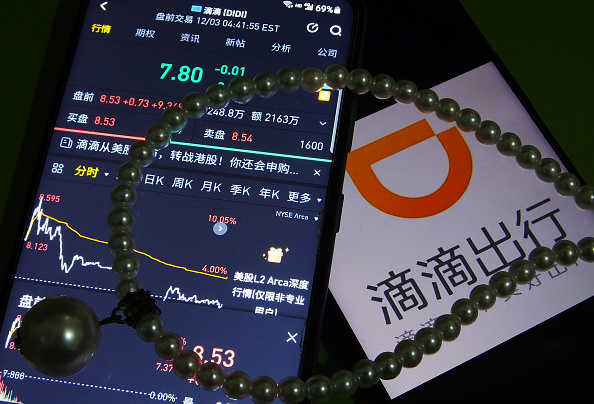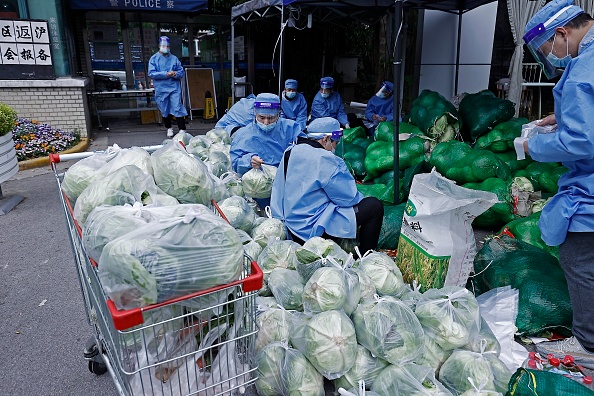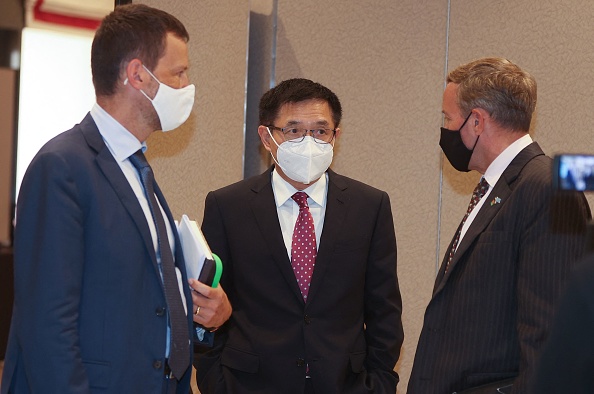
 Auditing Accountability
Auditing AccountabilityChina and the European Union held a much-anticipated summit, their first top-level meeting since the Russian invasion of Ukraine began. At the EU-China Summit, China renewed its criticism of Western sanctions against Russia, and European Union officials asked Beijing not to help Moscow find a way around the economic sanctions imposed in response to Russia's invasion of Ukraine.
According to European Council President Charles Michel, "The EU's top priority is to stop the war and protect the Ukrainian people. In times of crisis, dialogue is needed more than ever. That's why the EU and China focused on what can be done to end this war as soon as possible."
At the Summit, the Chinese Foreign Ministry partially blamed the United States for the Ukraine war, by pushing to expand the NATO military alliance closer to Russia's borders.
In the meantime, China cited progress toward resolving an audit dispute that has threatened U.S.-listed Chinese companies with delisting. Since March, the U.S. Securities and Exchange Commission has started to call out specific U.S.-listed Chinese stocks for failing to comply with the Holding Foreign Companies Accountable Act, which allows the SEC to delist foreign companies from U.S. exchanges if American regulators cannot review company audits for three consecutive years.
In a statement on Thursday, an official with the China Securities Regulatory Commission (CSRC) said it has learned from U.S. regulators that the addition of some Chinese firms to the list is a "normal" procedure. "Whether the companies will actually face delisting in the next two years will ultimately depend on the progress and results of China-U.S. audit and supervision cooperation," the CSRC official said.
The U.S. is continuing to demand that American regulators get full access to the audits, as a congressionally imposed deadline of 2024 is looming for kicking businesses off the New York Stock Exchange and Nasdaq Stock Market unless China complies.
 Shutdown in Shanghai
Shutdown in ShanghaiWhile most American cities are opening up and lifting COVID-19 restrictions, much of Shanghai, China's most populous city with some 25 million inhabitants, has been under lockdown as China battles its worst wave of coronavirus infections since the start of the pandemic.
Shanghai's port, the world's busiest, remained open, yet there are concerns that any delays at the port could ripple across global supply chains. The Port of Shanghai had already been suffering from major holdups, and the extension may worsen congestion and increase transportation costs further. It is the world's busiest container port, handling more than four times the volume seen at the Port of Los Angeles in 2021.
Shanghai's shutdown comes as China seeks a path out of the pandemic. Beijing officials had signaled that after two years of a "ZeroCovid" strategy, they wanted to begin opening up. The announcement of a lockdown sparked panic buying across the city as residents raced to stock up on food and supplies.
China's Covid lockdowns are estimated to cost the country at least $46 billion a month, or 3.1% of GDP, in lost economic output, and the impact could double if more cities tighten restrictions.
 A Diplomatic Push
A Diplomatic PushChina held two multinational meetings in Tunxi this week to discuss the "economic and humanitarian crisis facing Afghanistan." The meetings came as Beijing makes a diplomatic push for the country's stability and development under the Taliban. A top U.S. diplomat attended the gatherings hosted by Chinese special envoy for Afghanistan Yue Xiaoyong, as well as his Chinese, Russian, and Pakistani counterparts. Beijing also invited Taliban representatives to the talks, according to the State Department.
Xi Jinping delivered remarks at the meeting as well, emphasizing the urgent need for development in Afghanistan, and that a peaceful, stable, developing and prosperous Afghanistan is in the common interests of both countries in the region and the greater international community. His comments also alluded to Beijing's backing of the Taliban, noting that recognition of the group as the legitimate government would come "when conditions are ripe."
The meetings came after China's foreign minister Wang Yi made a surprise visit to Afghanistan's capital last week to meet with Taliban leaders, according to the official Bakhtar News Agency. It was reported that Wang was "to discuss various issues, including the extension of political relations, economic, and transit cooperation." Wang's visit occurred as Russian President Vladimir Putin's special envoy to Afghanistan, Zamir Kabulov, was also in Kabul.
Read more in "Afghanistan under the Taliban: China, Russia, and the Shanghai Cooperation Organization," by Kemel Toktomushev, a Research Fellow at University of Central Asia.
Prepared by China-US Focus editorial teams in Hong Kong and New York, this weekly newsletter offers you snap shots of latest trends and developments emerging from China every week, while adding a dose of historical perspective.
- 2022-03-25 Playing Policy
- 2022-03-18 One Hand Cannot Clap
- 2022-03-11 Political Forecast
- 2022-03-04 Competitive Advantage
- 2022-02-25 A Sovereign Tightrope
- 2022-02-18 Strategic Disengagement
- 2022-02-11 In the Thick of It
- 2022-02-04 Year of the Tiger
- 2022-01-28 Zero-Sum
- 2022-01-21 An Uncertain Future
- 2022-01-14 Digital Advances
- 2022-01-07 The Dawn of a New Political Year
- 2021-12-17 Clamp Down
- 2021-12-10 Debating Democracy
- 2021-12-03 Managing Competition
- 2021-11-19 Responsible World Leadership
- 2021-11-12 A Historic Transformation
- 2021-11-05 A Green Rivalry
